Canned tuna is a popular snack for many cat owners who want to spoil their feline friends with a tasty and protein-rich treat. But is canned tuna good for cats? And is canned tuna safe for cats?
The answer is not so simple. While canned tuna can provide some benefits for cats, such as protein and omega-3 fatty acids, it can also have some drawbacks, such as high mercury levels, low vitamin E content, high sodium content, and addictive flavor.
Too much canned tuna can cause health problems for cats, such as mercury poisoning, nutritional deficiencies, allergic reactions, and salt poisoning. Therefore, canned tuna should only be given to cats occasionally and in moderation, and cats should eat a balanced cat food that meets their nutritional needs.
In this article, we will explain why cats love canned tuna, what are the benefits and risks of canned tuna for cats, how to choose safely canned tuna for cats, and what are the best-canned tuna brands for cats.
Table of Contents
Why Do Cats Love Canned Tuna?
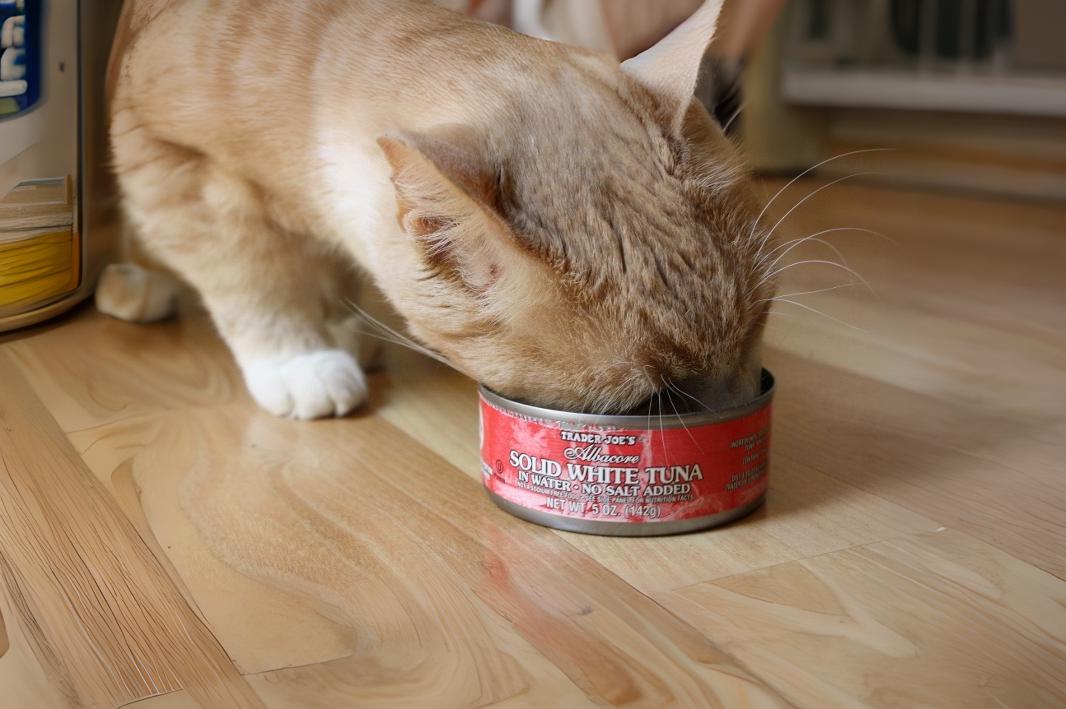
Canned tuna is a tempting treat for cats because of its strong, fishy aroma and rich flavor. It also contains some protein and omega-3 fatty acids, which are essential for cats’ muscle and skin health.
Cats rely on their sense of smell to identify food, and tuna has a very enticing smell for them. Cats may also enjoy tuna as a reward or a special meal.
However, canned tuna is not suitable for a regular diet for cats, as it can cause several health problems if given too frequently or in large portions. Canned tuna may have high levels of mercury and other toxins that can damage cats’ nervous systems and kidneys.
Canned tuna may also lack vitamin E and other antioxidants, which can lead to inflammation and oxidative stress if fed alone or in oil. Canned tuna may also spoil cats’ appetites and make them reject their normal cat food, which can result in nutritional imbalances.
Therefore, canned tuna should only be offered to cats as an occasional snack or addition, and not as their main food source. Cats need high-quality commercial cat food that meets their nutritional needs for their age and health status.
If you decide to give your cat canned tuna, you should opt for canned tuna in water, not in oil or brine, and preferably chunk-light tuna, which has less mercury than albacore.
Is Canned Tuna Good for Cats?
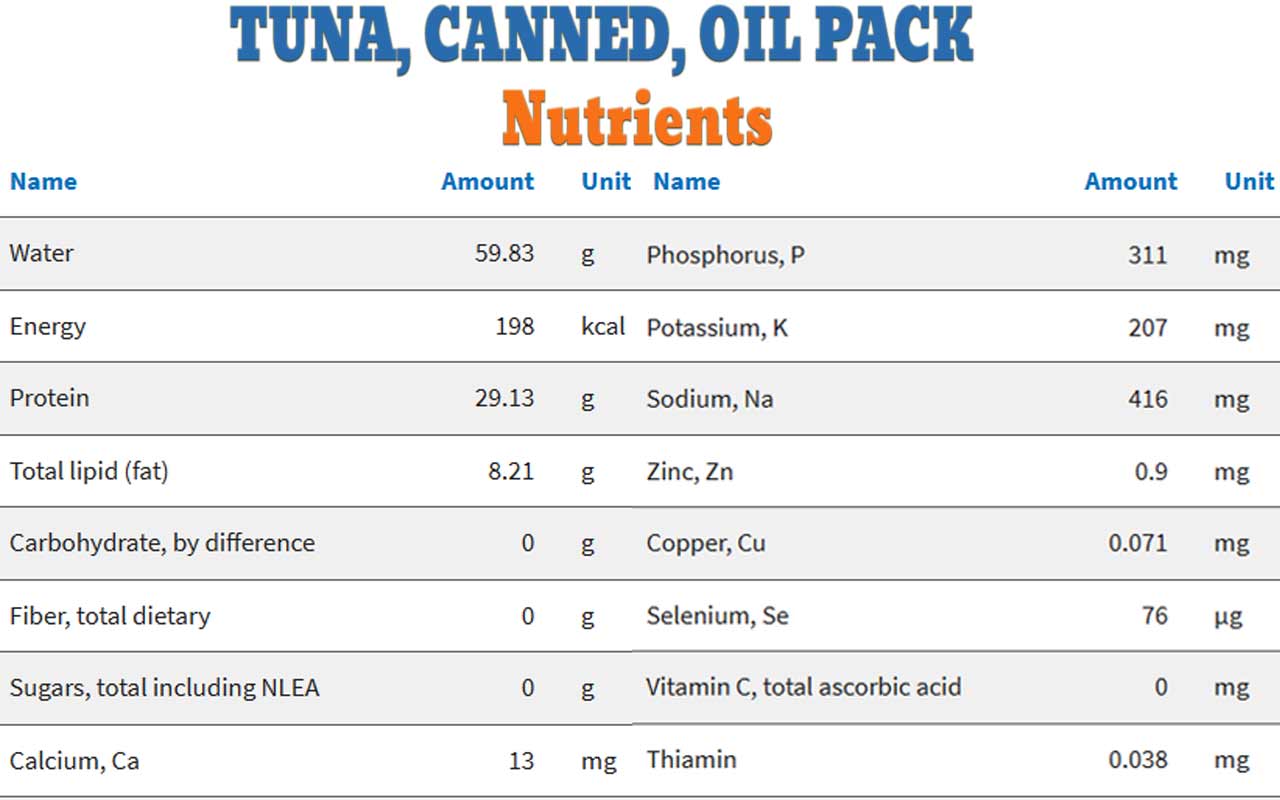
Canned tuna can be a good treat for cats, but it should not be their main diet. Canned tuna provides some protein and omega-3 fatty acids, which are beneficial for cats’ health.
However, canned tuna also has some drawbacks, such as high mercury levels, low vitamin E content, and high sodium content. Too much-canned tuna can cause health issues for cats, such as nervous system damage, inflammation, and dehydration.
Therefore, canned tuna should only be given to cats occasionally and in moderation, and cats should eat balanced cat food that meets their nutritional needs.
Benefits of Canned Tuna for Cats
Canned tuna can be a healthy treat for cats in moderation. It is high in protein and low in carbohydrates, and it also provides omega-3 essential fatty acids EPA and DHA, which can contribute to overall skin and coat health and may also help improve inflammatory conditions like allergies, heart disease, certain cancers, and kidney disease.
Here are some of the benefits of canned tuna for cats:
- Protein: Tuna is a good source of protein, which is essential for cats’ growth and development. Protein also helps to keep cats’ muscles strong and healthy.
- Omega-3 fatty acids: Tuna is a good source of omega-3 fatty acids, which are important for a variety of health benefits in cats, including skin and coat health, heart health, and cognitive function.
- Low in carbohydrates: Tuna is low in carbohydrates, which is important for cats with diabetes or other conditions that require a low-carb diet.
- Low in mercury: Canned tuna is a lower-mercury fish than some other types of fish, such as albacore tuna. However, it is still important to limit the amount of tuna that cats eat, as too much mercury can be harmful.
Risks of Canned Tuna for Cats
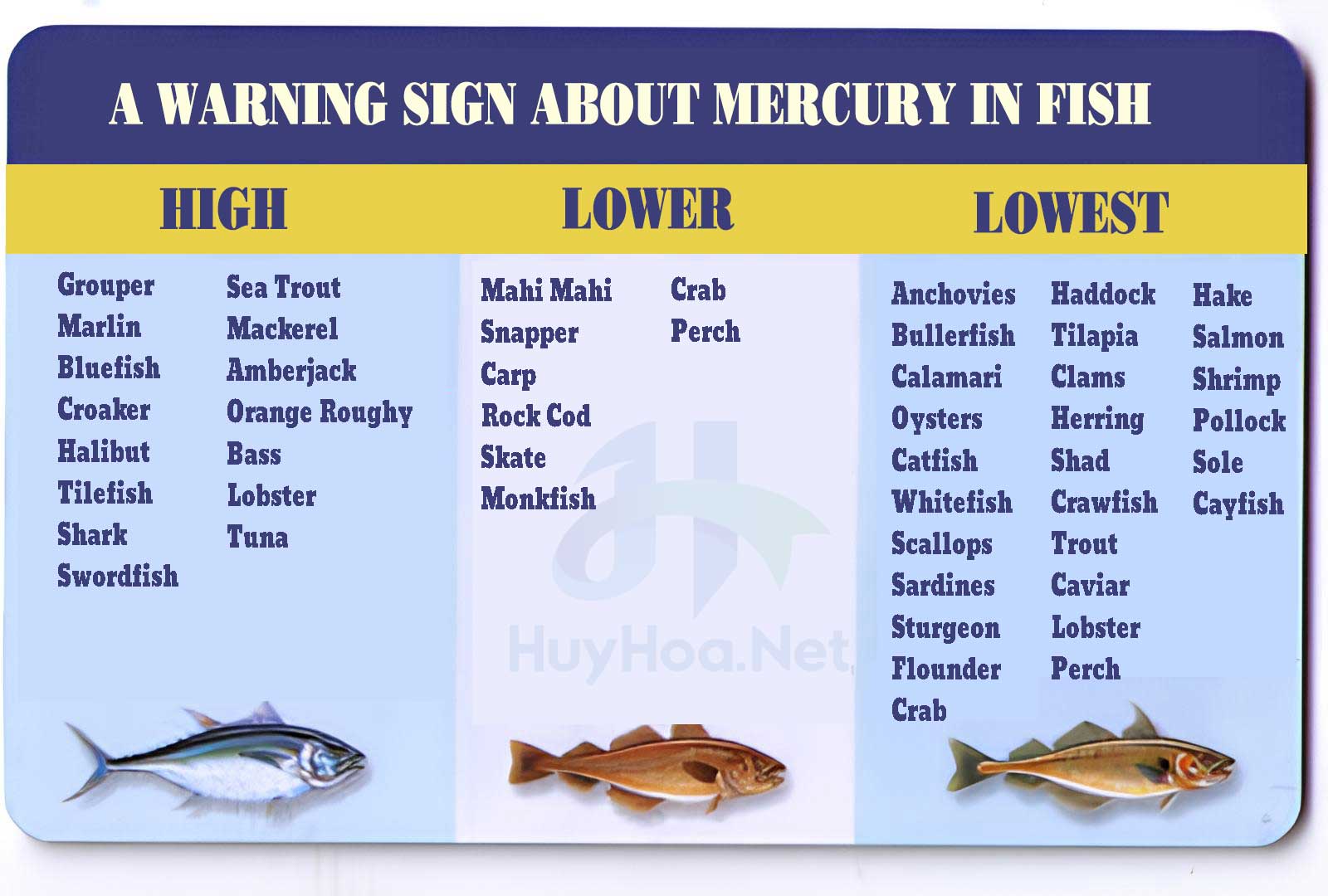
Canned tuna can be a delicious treat for cats, but it should not be their main food source. Canned tuna can have some negative effects on cats’ health, such as:
- Mercury poisoning: Tuna is a fish that can contain high levels of mercury, a toxic metal that can harm cats’ nervous systems and kidneys. Too much mercury can cause symptoms like loss of coordination, balance, vision, and seizures in cats.
- Nutritional deficiencies: Canned tuna is not a balanced diet for cats, and it does not have all the nutrients that they require. Cats that eat too much tuna may lack other essential nutrients, such as taurine and vitamin A, which are important for their heart and eye health.
- Allergic reaction: Some cats may be allergic to fish, and eating tuna can trigger an allergic reaction. Signs of an allergic reaction in cats can include itching, vomiting, diarrhea, and breathing difficulties.
- Salt poisoning: Canned tuna in brine can have high salt content, and too much salt can be dangerous for cats. Salt poisoning can cause symptoms like vomiting, diarrhea, and seizures in cats.
To avoid these risks, canned tuna should only be given to cats as an occasional snack or addition, and not as their regular diet. Cats need a high-quality cat food that meets their nutritional needs and provides them with all the essential nutrients they need.
If you want to give your cat canned tuna, you should choose canned tuna in water, not in oil or brine, and preferably chunk-light tuna, which has less mercury than albacore. You should also consult your veterinarian before giving your cat any supplements or additives.
Is Canned Tuna Safe for Cats?
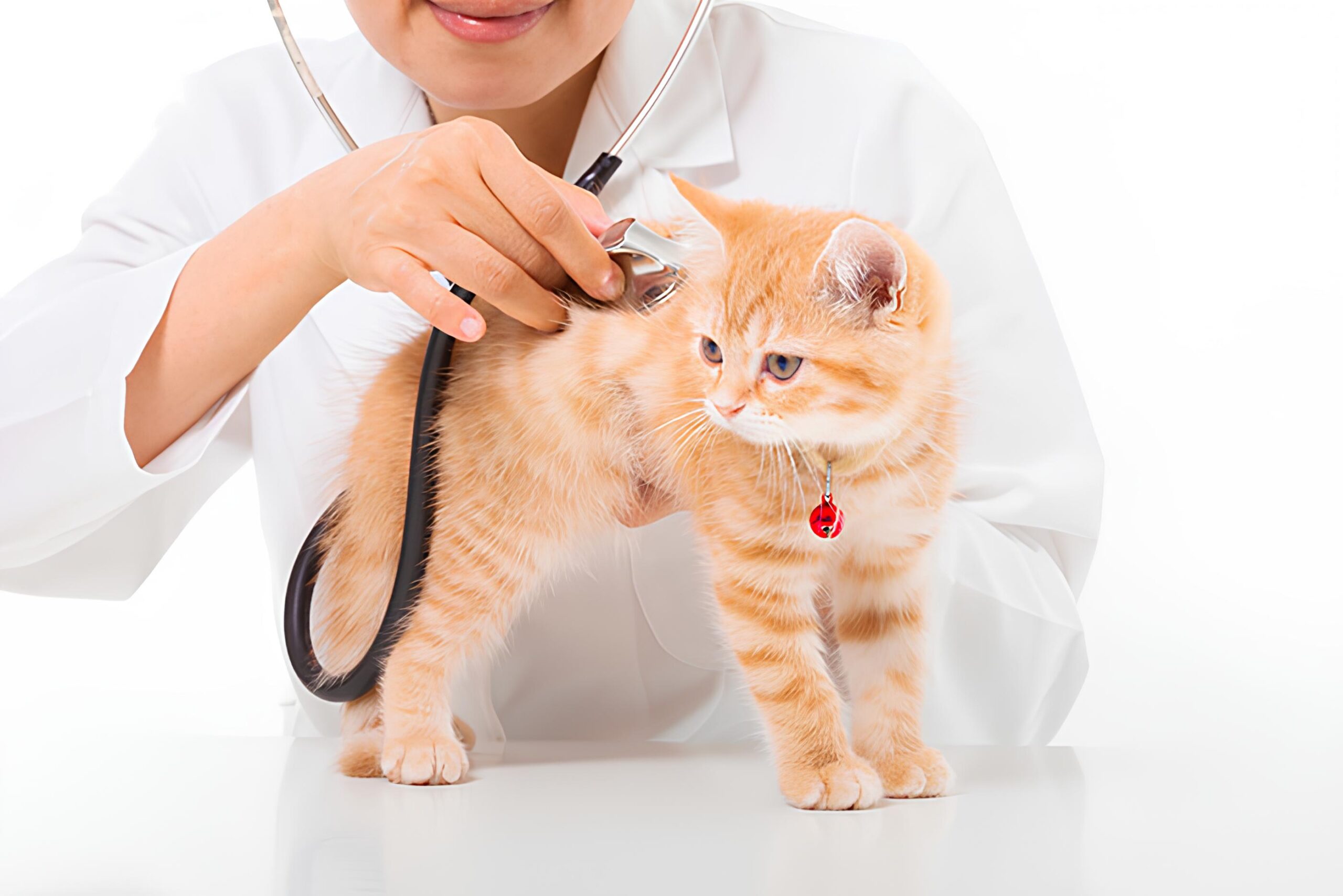
Canned tuna can be a delicious treat for cats, but it should not be their regular food source. Tuna is a fish that can contain high levels of mercury, which can harm cats’ health. It is also important to avoid canned tuna in oil or brine, as these can have high salt content.
As a general rule, it is best to limit the amount of canned tuna that cats eat to no more than once or twice a week. If you are unsure about the safety of canned tuna for your cat, consult your veterinarian.
Here are some other factors to consider when feeding canned tuna to cats:
- Chunk-light tuna: Chunk-light tuna has less mercury than albacore tuna, so it is a safer option for cats.
- Fresh tuna: Fresh tuna is also a good choice for cats, but it needs to be cooked well to kill any harmful bacteria.
- Tuna-flavored cat food: There are many commercial cat foods that have tuna as an ingredient. These foods are generally safe for cats, but you should check the label carefully to make sure that the food is balanced and does not have too much mercury.
If you have any questions about the best way to include tuna in your cat’s diet, talk to your veterinarian. They can help you to find the best food for your cat’s health and well-being.
How to Choose Safe Canned Tuna for Cats?
Canned tuna can be a delicious treat for cats, but it should not be their regular food source. Canned tuna can have some negative effects on cats’ health, such as mercury poisoning, vitamin E deficiency, dehydration, and picky eating. To avoid these risks, you need to choose safe canned tuna for cats by following these tips:
- Choose canned tuna in water, not oil or brine. Oil and brine can have high salt content, which can harm cats’ kidneys and blood pressure. Water-packed tuna has less sodium and calories than oil-packed or brine-packed tuna.
- Choose chunk-light tuna, not albacore tuna. Chunk-light tuna has less mercury and fat than albacore tuna, which can harm cats’ nervous systems and weight. Mercury can accumulate in the body over time and cause symptoms like loss of coordination, balance, vision, and seizures in cats.
- Look for tuna that is packed in a BPA-free can. BPA is a chemical that can leach into food from cans, and it can harm cats’ endocrine systems and reproductive health. BPA-free cans are safer for cats and the environment.
- Read the label carefully to make sure that the tuna does not contain any added salt, spices, or other ingredients that are not safe for cats. Some canned tuna that is meant for human consumption may have salt, oil, spices, or other flavorings that are harmful for cats. You should look for plain tuna that is free of any additives or preservatives.
- Drain the tuna well before feeding it to your cat. This will help to remove any excess sodium and oil that may be in the tuna. You can also rinse the tuna with water to further reduce the salt content.
- Do not feed your cat canned tuna more than once or twice a week. Too much tuna can cause health problems for cats, even if it is safe tuna. Tuna does not provide all the nutrients that cats need, and it can cause nutritional deficiencies if fed as their main diet. Cats need a balanced cat food that meets their nutritional needs and provides them with all the essential nutrients they need.
If you are unsure about whether or not a particular brand of canned tuna is safe for cats, consult your veterinarian.
Here are some other factors to consider when feeding canned tuna to cats:
- Fresh tuna: Fresh tuna is also a good choice for cats, but it needs to be cooked well to kill any harmful bacteria. Raw fish can contain parasites or bacteria that can cause infections or diseases in cats.
- Tuna-flavored cat food: There are many commercial cat foods that have tuna as an ingredient. These foods are generally safe for cats, but you should check the label carefully to make sure that the food is balanced and does not have too much mercury.
If you want to give your cat a safe and healthy treat of canned tuna, you should follow these guidelines and consult your veterinarian before giving your cat any supplements or additives.
Best Canned Tuna Brands for Cats
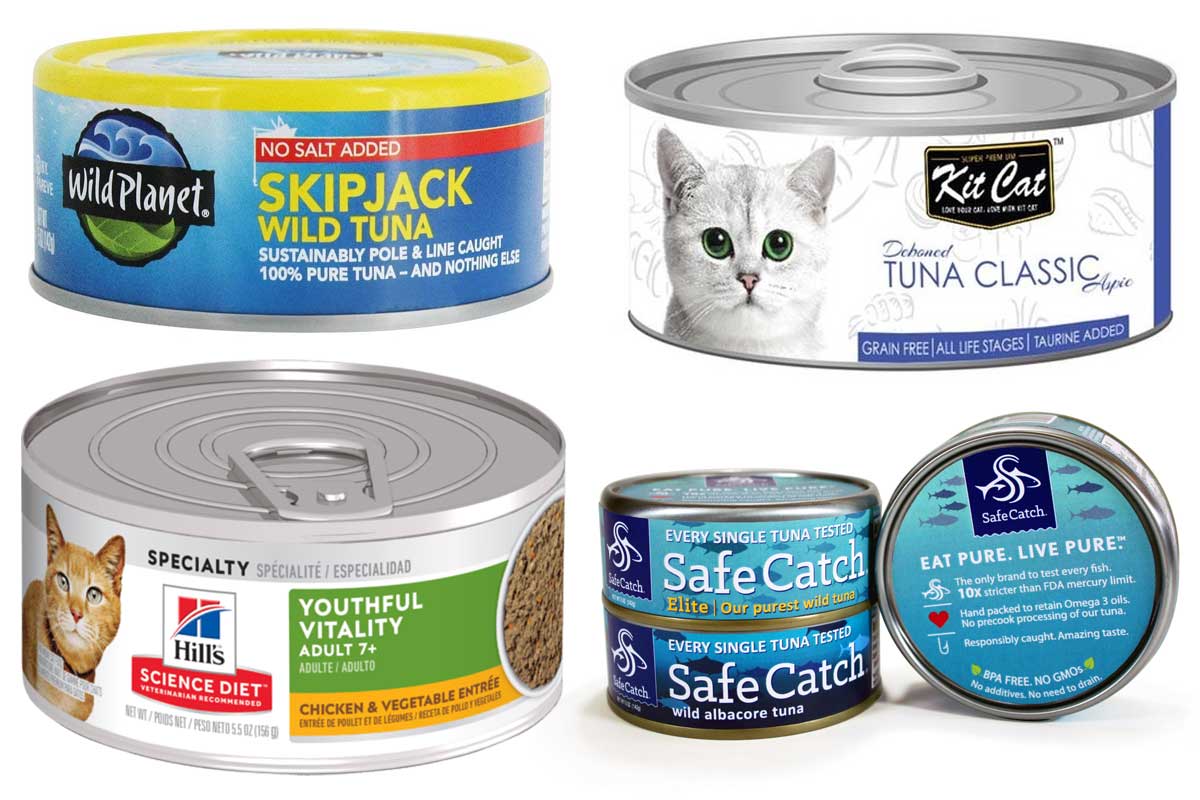
Canned tuna can be a healthy treat for cats, but it should not be their regular food source. Canned tuna can have some negative effects on cats’ health, such as mercury poisoning, vitamin E deficiency, dehydration, and picky eating. To avoid these risks, you need to choose a high-quality canned tuna brand for your cat by following these tips:
- Check the mercury level: Tuna is a fish that can contain high levels of mercury, which can harm cats’ nervous systems and kidneys. You should choose a brand that uses chunk-light tuna over albacore tuna, as chunk-light tuna has less mercury and fat than albacore tuna.
- Read the ingredients: The best-canned tuna brands for cats will have simple ingredients, such as tuna, water, and salt. You should avoid brands that have added salt, spices, or other ingredients that are not safe for cats.
- Look at the packaging: The best-canned tuna brands for cats will be packed in BPA-free cans. BPA is a chemical that can leach into food from cans, and it can harm cats’ endocrine systems and reproductive health. BPA-free cans are safer for cats and the environment.
Some examples of high-quality canned tuna brands for cats are:
- Wild Planet: This brand uses wild-caught tuna that is low in mercury and high in omega-3 fatty acids. It is packed in water with no added oil or fillers.
- Allegro: This brand uses sustainably sourced tuna that is certified by the MSC or the ASC. It is packed in water with no added salt or preservatives.
- Good & Gather: This brand uses responsibly sourced tuna that is tested for mercury and other contaminants. It is packed in water with no added oil or artificial flavors.
- Safe Catch: This brand uses hand-cut tuna that is tested for mercury and other pollutants. It is packed in water with no added broth or fillers.
- Tonnino: This brand uses dolphin-safe tuna that is low in mercury and high in protein. It is packed in water with no added sugar or gluten.
These are just some examples of canned tuna brands for cats that meet the general criteria mentioned above. However, you should always consult your veterinarian before giving your cat any new food or supplement, as they can advise you on the best option for your cat’s specific needs and preferences.
It is important to note that even the best-canned tuna brands should only be fed to cats occasionally and in moderation. Canned tuna is not a balanced diet for cats, and it does not provide all the nutrients that cats need.
If you are unsure about whether or not a particular brand of canned tuna is safe for your cat, consult your veterinarian.
Conclusion
Choosing safe and nutritious canned tuna for your cat is essential to ensure their health and well-being. By considering the source, type, sodium content, packaging, and storage of canned tuna, you can ensure that your cat is receiving a safe and nutritious treat. If you are unsure, it is always best to consult with a veterinarian.
So, whether you’re looking to treat your cat to a tasty snack or add some variety to their diet, remember to choose safe and nutritious canned tuna. If you’re still not sure if your cat can safely eat tuna, check out our article, “Can Cats Eat Tuna?” for more information.
Frequently Asked Questions
How much tuna can a cat eat?
A cat can eat a small amount of tuna as an occasional treat, but not as a regular part of their diet. Too much tuna can cause health problems for cats.
Can cats eat canned tuna?
Cats can eat canned tuna packed in water, but not canned tuna in oil or with added salt or flavorings. Canned tuna should be given sparingly and not as a main source of food.
Can cats eat albacore tuna?
Cats should avoid albacore tuna, which is higher in mercury than chunk-light tuna. Mercury can be toxic to cats and cause neurological problems. Albacore tuna is also lower in omega 3 than chunk-light tuna.
How often should cats eat tuna?
There is no definitive answer to how often cats should eat tuna, as different cats may have different tolerances and preferences. However, a general guideline is to limit tuna to no more than once a week, and preferably less. Tuna should not make up more than 10 percent of your cat's daily calories. Tuna should always be given as a supplement to a complete and balanced cat food, not as a replacement.
How to feed tuna to cats?
To feed tuna to cats, you should choose 100 percent real tuna, either canned or fresh, and avoid artificial fish flavors. You should also select tuna packed in water, not in oil or with added salt or other ingredients. You should give your cat a small amount of tuna, such as a teaspoon or a tablespoon, depending on the size of your cat. You should not feed tuna more than once a week, and preferably less.
What are the risks of cats eating tuna?
Some of the risks of cats eating tuna are:
- Tuna does not provide all the essential nutrients that cats need and can cause nutritional deficiencies if fed as a main source of food.
- Tuna is high in mercury, which can accumulate in the cat's body and cause mercury poisoning, leading to neurological problems.
- Tuna is low in vitamin E, which can cause fat inflammation and bleeding disorders, especially in pregnant cats.
- Tuna is very tasty, which can make cats addicted to it and refuse to eat their regular cat food, resulting in picky eating and feeding difficulties.

